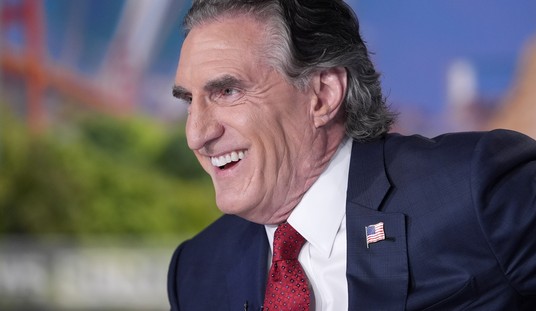Is sauce for the Republican goose good for the Democratic gander? Senator James Lankford (R-OK) plans to find out tomorrow in the Senate Rules Committee. Lankford told C-SPAN that he plans to introduce a rule change that will copy, word for word, a temporary changed pushed by Harry Reid and Senate Democrats to keep Republicans from stalling Barack Obama’s judicial nominations. Will Democrats abide by the same restrictions they wanted on the GOP?
Three guesses, and the first two don’t count:
In 2013, Harry Reid & the Democrats led a bipartisan Senate rules change to speed up nominations for the 113th Congress. This Wednesday, the Senate Rules Committee will bring it up again, this time to make it permanent. Will the Dems support it again? #GridlockReform #Newsmakers pic.twitter.com/1edXp9QR9w
— Sen. James Lankford (@SenatorLankford) April 23, 2018
Senate Rules and Administration Chairman Roy Blunt of Missouri has scheduled a Wednesday afternoon markup of a proposed new standing order that would restore and make permanent reductions in post-cloture debate time that were in effect during part of the last Democratic majority.
The measure would slash debate time to up to eight hours for many executive branch nominees, excluding the most senior positions.
“I’ve reached back to that 2013 agreement that Harry Reid did, that every single Democrat but one agreed to, and said let’s go back to that agreement,” said Oklahoma GOP Sen. James Lankford, the author of the resolution.
Speaking with reporters for Roll Call and The Washington Post in an interview that aired Sunday on C-SPAN, Lankford conceded that so far he has not gotten any Democrats to sign on to the 2018 version of the proposal.
For those who don’t recall the rules change, it came at the beginning of the session in January 2013, when Reid was trying to push back against GOP stall tactics that looked miiiiiiiiiiiiiighty like the Democrats’ own stall tactics during the Bush administration. The change — to which a significant number of Republicans agreed at the time — kept the filibuster in place for presidential nominations, but cut the post-cloture debate time to two hours from 30. Later that year, Reid then reneged on the agreement and detonated the “nuclear option” that eliminated filibusters on presidential appointments except for the Supreme Court and still kept debate down to two hours.
The sharp reduction in debate time only took effect temporarily, however, returning to its 30-hour standard in the next session. Lankford proposes to make a reduction the permanent standard, and given that both Democrats and Republicans agreed on it five years ago, Lankford thinks it should pass on regular order. And perhaps it would if not for the enmity that has replaced comity in the Senate on presidential appointments over the last seventeen years. No one seriously believes that an additional 22 (or 28) hours of floor debate changes other members’ minds on how they plan to vote on confirmation on any significant appointment. It just stalls all other business, making a lesser replacement for filibusters and holds.
If this change is to take place, Mitch McConnell will have to use the Harry Reid method to impose it, most likely. McConnell has repeatedly threatened to do so, but thus far has been reluctant to take it up. If Democrats don’t want to reach a compromise in regular order and McConnell remains reluctant to pull a Harry on them, then perhaps the majority leader can just keep the Senate in continuous session without any recesses until Democrats exhaust the debate limits and McConnell can get floor votes for confirmations. A few weekends in DC might be enough to get everyone in a more flexible mood.








Join the conversation as a VIP Member